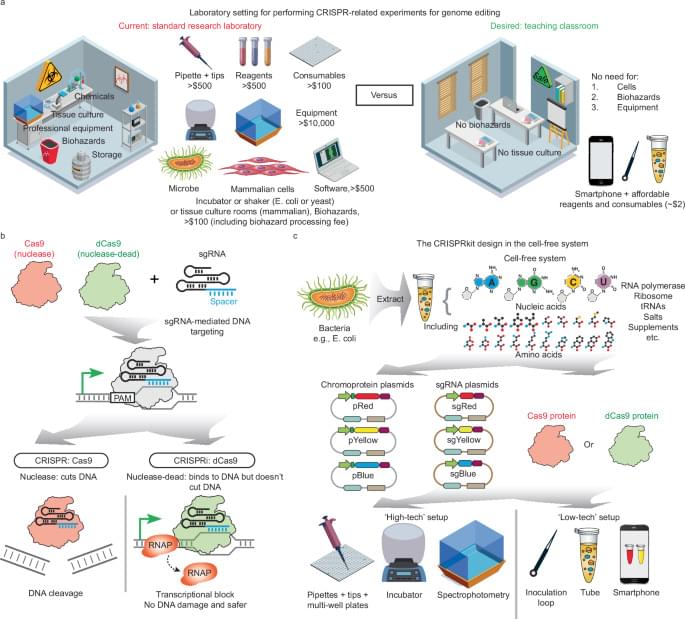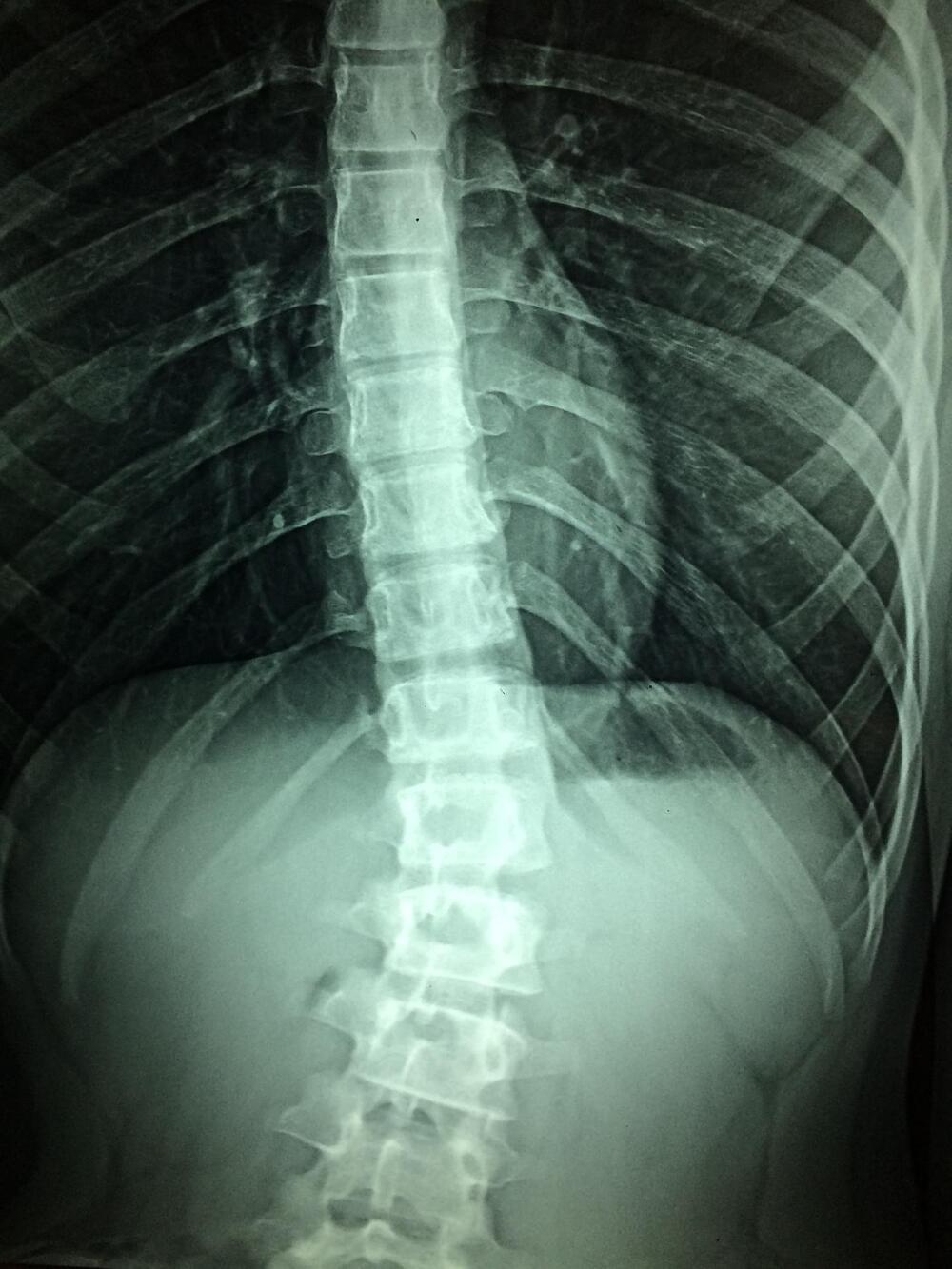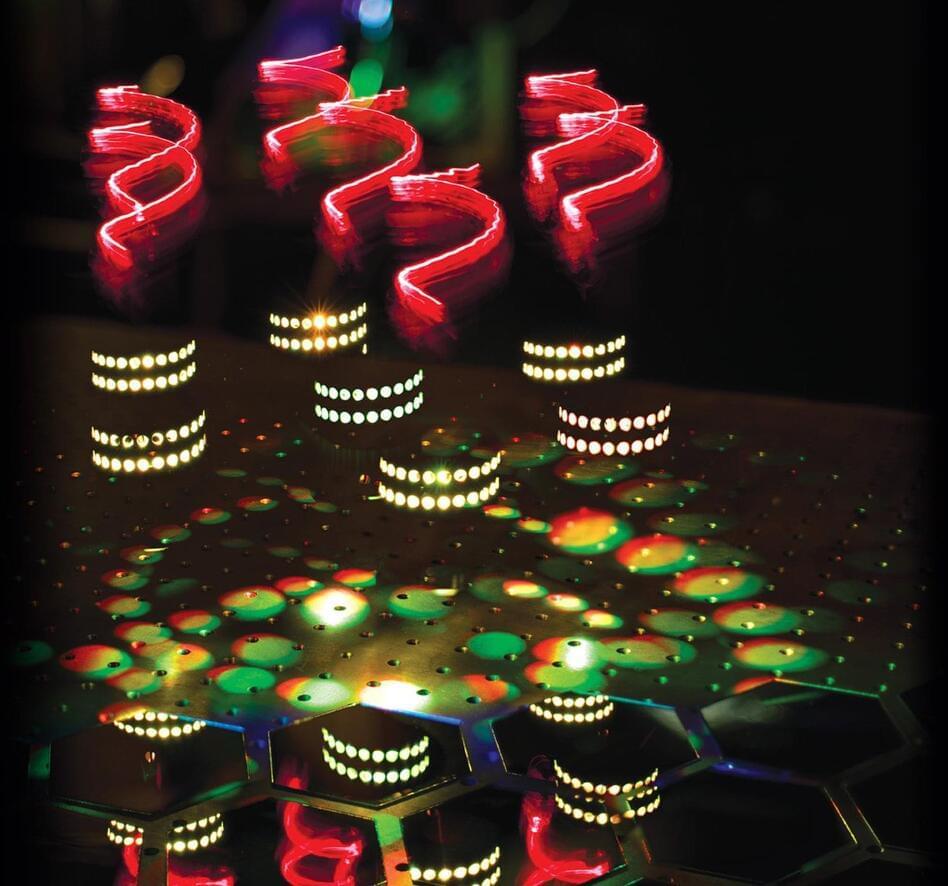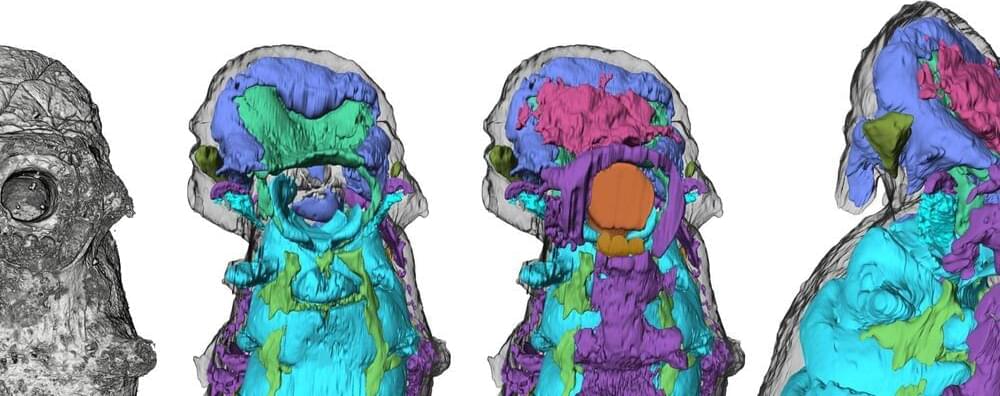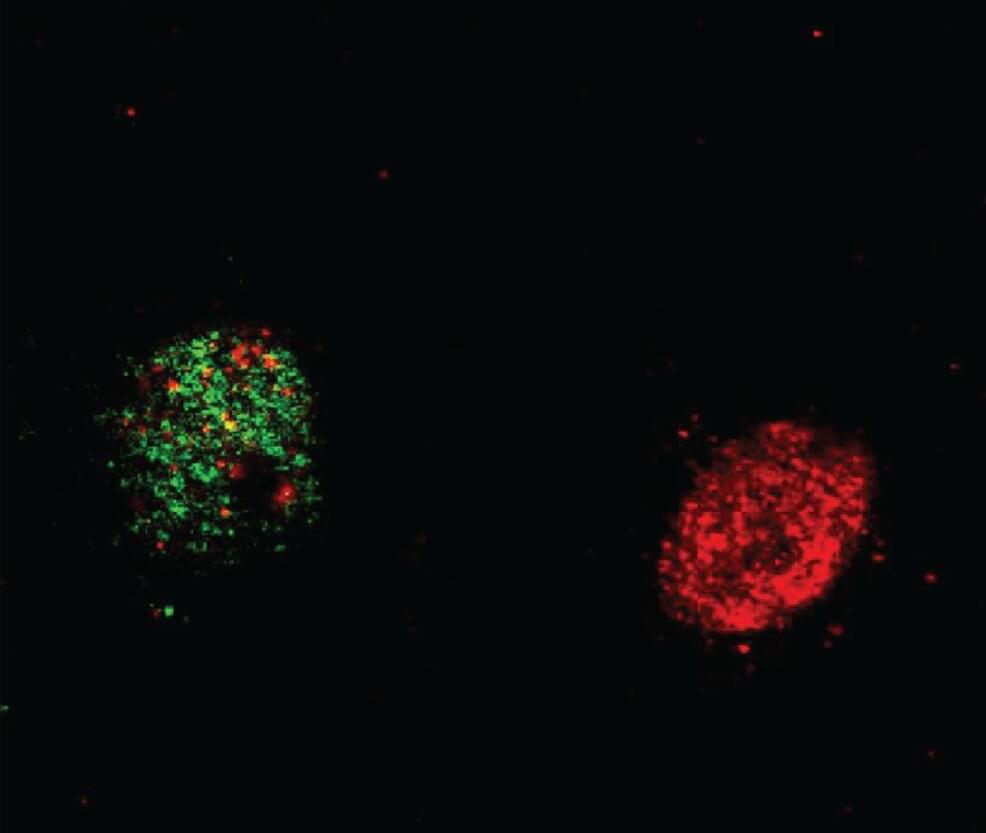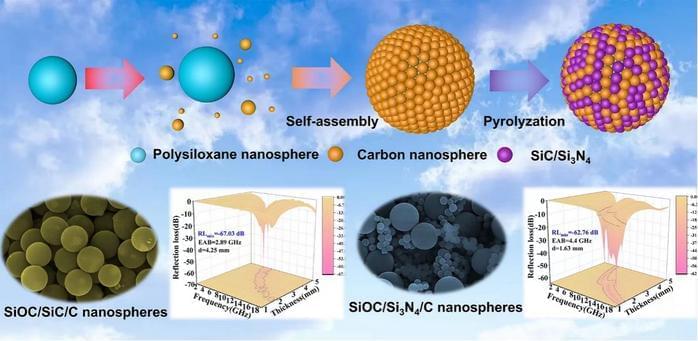Aug 3, 2024
A frugal CRISPR kit for equitable and accessible education in gene editing and synthetic biology
Posted by Paul Battista in categories: bioengineering, biotech/medical, education, information science
Equitable and accessible education in life sciences, bioengineering, and synthetic biology is crucial for training the next generation of scientists. Here the authors present the CRISPRkit, a cost-effective educational tool that enables high school students to perform CRISPR experiments affordably and safely without prior experience, using smartphone-based quantification and an automated algorithm for data analysis.
